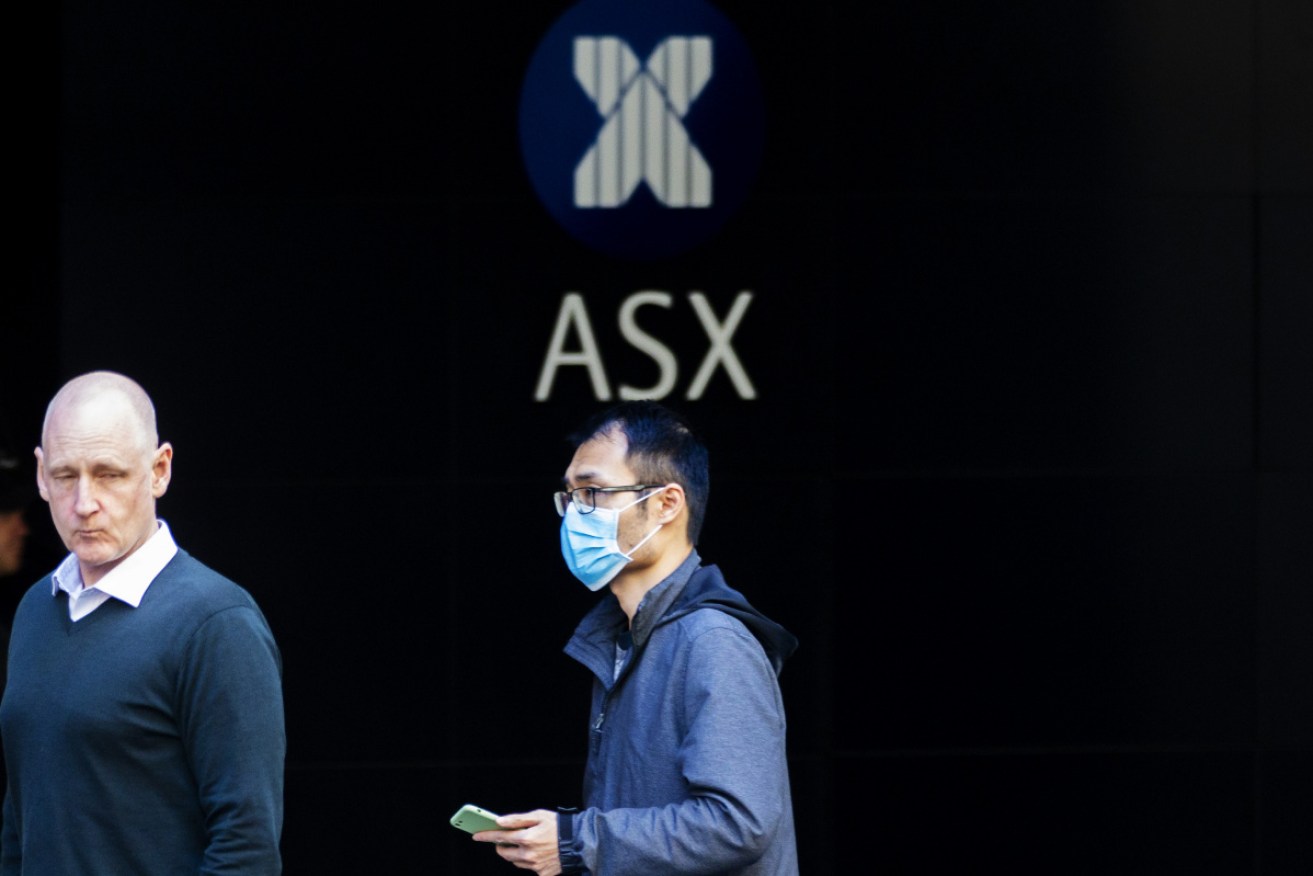Wealth inequality worsens as Australian sharemarket shrugs off Delta


The sharemarket is pushing fresh record highs as workers endure ongoing lockdowns. Photo: Getty
A multibillion-dollar disparity is playing out across the economy right now as asset prices soar against a backdrop of ongoing lockdowns.
Australia is losing about $1 billion a week as COVID restrictions force 10 million Australians to stay home, according to estimates from UBS economists.
Hundreds of thousands of workers are losing income before a widely expected reduction in the size of the economy in the September quarter.
Astoundingly, even as the Delta variant ravages Australia, the sharemarket has soared to record highs.
The ASX 200, which accounts for 88 per cent of Australia’s listed market, has risen in value by 4.1 per cent since July 1 and put on a staggering $100 billion.
It is nothing short of a boom – and one that is delivering the biggest pay days to richer Australians.
Most people are benefitting through big gains in their superannuation balances, but economists say there is a growing disconnect between the ways in which workers and investors are experiencing the economy as wealth inequality worsens.
Mega profits lift sharemarket
You can hardly blame investors for being bullish, despite concerns about the pandemic.
The news coming out of Australia’s largest companies just keeps getting better, with Commonwealth Bank on Tuesday reporting a whopping $8.8 billion profit for the 2020-21 financial year – up 19.7 per cent annually.
Profits like these are encouraging investors to take a glass-half-full view of the latest downturn as they look ahead to an expected economic rebound.
Independent economist Saul Eslake said investors are seeing what is happening across the pond in the United States and betting on a rosier future.
“The US is having its strongest growth since 1984,” Mr Eslake said.
“Sharemarkets are betting on the global economic recovery.”
Betting on workers losing
Rosy expectations of economic growth are only half the story, though.
As it turns out, investors are also betting on workers losing big.
Mr Eslake said a higher proportion of national income is set to flow into profits rather than wages this year, and that this is being priced into shares.
“What matters for sharemarkets is not only growth but the distribution of that growth between profits and wages,” Mr Eslake said.
“There is still a fair bit of unemployment around.
“[So] there’s a good chance that a large share of economic growth this year will end up in profits.”
One positive in this picture for workers is that higher sharemarket prices will flow through to superannuation gains, lifting retirement savings.
Superannuation funds scored big returns over the past 12 months amid rising stock prices and a rush of dividends kicked out by corporations.
But workers are still about to cop a double whammy: The economy will probably shrink in September and so will their share of the total pie.
On the flip side, capital owners will benefit and this will result in higher share prices.
Sharemarket risk
Business’ growing share of GDP is a continuation of a trend experienced during the 2020 recession and is particularly striking given its share usually falls during a downturn.
The Australia Institute chief economist Richard Denniss said this time was different because company profits were protected by schemes such as JobKeeper.
“Historically, equity premiums have been justified on the basis capital is a risky business,” Dr Denniss said.
“But what we’re seeing is that it’s low-wage workers [who] are bearing [the] risk.
“The people making higher returns in the good times are also the people making higher returns in the bad times.”
And as the downturn continues, Dr Denniss said investors are rejecting government and RBA predictions that wages growth will pick up.
“No one betting their own money is willing to put it where the government’s mouth is,” he said.
“Everyone is assuming the opposite.”
Wealth inequality worsening
Dr Denniss and Mr Eslake said the evidence points to a growing disconnect between the ways in which the pandemic is affecting workers and investors.
The main reason share prices shot up is because the RBA flooded the economy with cheap money to stop unemployment spiking over the past 18 months.
That’s good news for workers, who need wages to pay their bills, while investors also benefit from extra money flowing through the economy.
But nailing interest rates to the floor and creating money has downsides, too.
It inflates property and share prices, which worsens wealth inequality because rich people earn more income from these sources.
Although higher asset prices are positive news for superannuation balances and property owners, they help some more than others.
The top 40 per cent of households by income made a quarter of their money on property, dividends and interest in 2019-20, the ABS found.
Meanwhile, the bottom 40 per cent of households made less than 15 per cent of their income from these sources, relying much more on wages.
The richest 20 per cent of households by income made 34 times more than the poorest 20 per cent did from investment dividends in 2019-20.
Dr Denniss said this wasn’t just a fairness issue but an economic one.
He pointed to IMF and World Bank findings that inequality leads to slower economic growth overall.
“The most conservative economic agencies in the world now say that growing inequality is a brake on economic growth,” Dr Denniss said.








